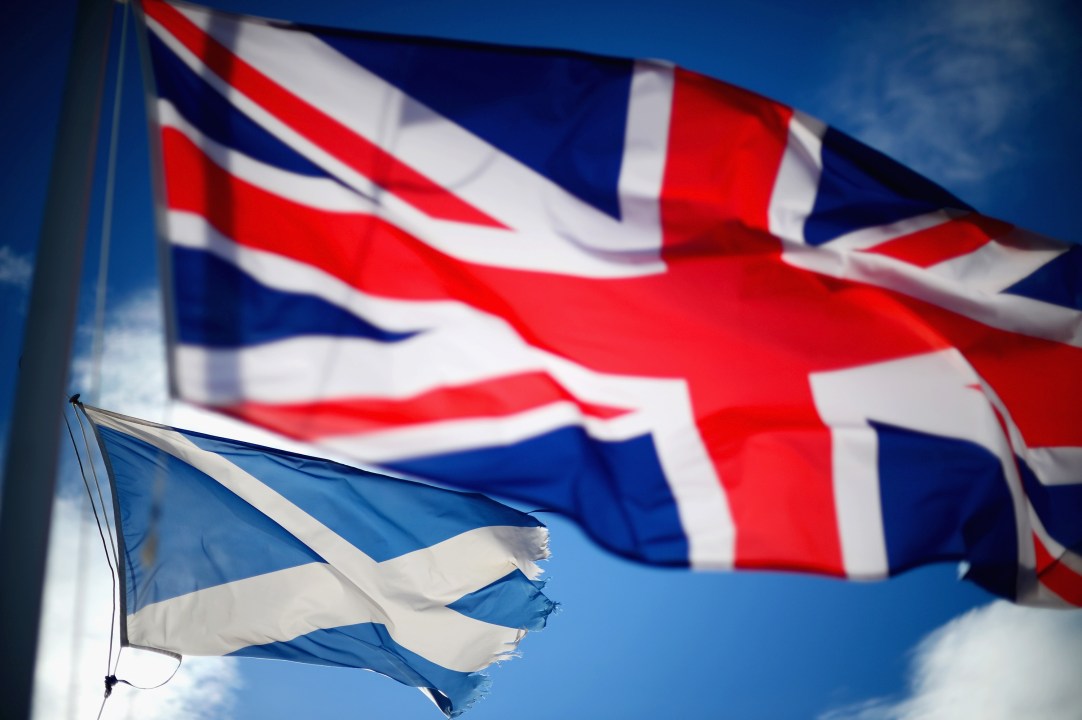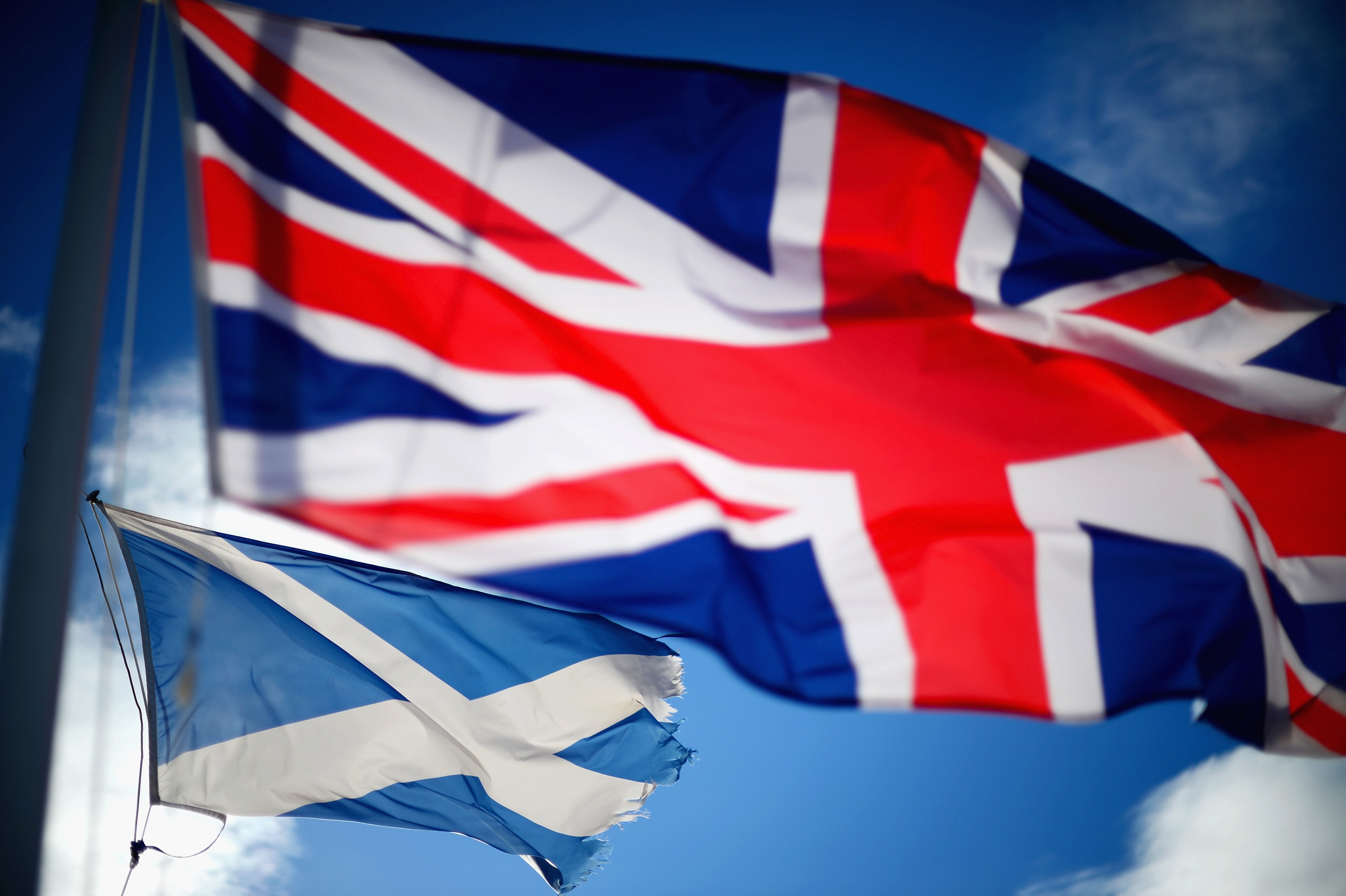Perhaps. Because when you cross the Rubicon you obliterate a line in the sand. Or something like that, anyway. Ruth Davidson was elected leader of the Scottish Conservative and Unionist party on a platform promising no more concessions to the SNP. She was the candidate favoured by the party establishment, the candidate for continuity not change.
By contrast, Murdo Fraser’s tilt for the leadership argued that the party should dissolve itself and start again. Four in ten Tory members voted for euthanasia.
The publication today of the Strathclyde Commission’s report on further devolution of powers to the Scottish parliament is perhaps best understood as a synthesis of the Davidson and Fraser approaches. This is still the Conservative and Unionist party but it is unrecognisable from the Conservative and Unionist party we have known and lamented these past twenty years. You might dub it Fraser Measures applied by Davidson Men (and Women).
It is, as you would expect, an unimpeachably Unionist document but one that applies Tory philosophy to devolutionary politics. And not before time. The Tories are not responsible for the circumstances in which contemporary Scottish politics is arranged but they are, at long last, responsible for their response to those circumstances.
After a generation of craven self-abasement and denial they have emerged from their cave and have, at long last, something to present to the Scottish electorate. They have something to say and, by jove, they actually intend to say it. Astonishing scenes.
Devolving control of income tax to Holyrood is both intellectually and practically robust. It can be done. It will be done. Assuming, that is, that Scots vote No in September and Britain votes for David Cameron next May.
The Nationalists, whom one would not expect to be impressed by anything published today, will tell you this is just another bluff, just another piece of Tory bluster. They don’t mean it. A No vote means No More Powers. As usual the nationalists cannot acknowledge that their opponents might be arguing in good faith. As usual this is tedious.
But the notion that a parliament must raise more of its income if it is to be anything more than a pocket-money parliament (as Davidson has taken to calling it) is a good one. A good Tory notion too. The Tory plans would have Holyrood raise 40% of its income and, if a share of VAT receipts are remitted too that figure could increase to above 50%.
However improbably, this makes the Tories the party of devolution now. This is obviously rather entertaining (if also something many on the left struggle to comprehend). Their proposals are, I think, better in practical terms than those made by the Labour party; they are certainly more intellectually coherent.
And they would, as Strathclyde points out, grant the Scottish parliament more independence freedom to experiment than is afforded most comparable legislatures around the world.
Amidst all the talk of tools and levers in Edinburgh it is sometimes forgotten just how much power Holyrood already enjoys. As Strathclyde points out:
Many of the matters of most concern to Scots are already the responsibility of the Scottish Parliament. It is worth highlighting that these are matters over which ministers in the UK Government have no say. This is true, for example, for health care in Scotland; for the Scottish education system, from nurseries and schools to universities and colleges; for Scottish criminal justice, including policing and prisons; for the civil justice system in Scotland; for Scottish culture, sport and tourism; for transport in Scotland; for the Scottish environment; for agriculture, forestry and fishing; and for local government in Scotland, including housing, regeneration and the local planning framework.
Westminster, by contrast, ‘provides defence and security, international relations and foreign policy, social security and macro-economic policy, including the currency’.
Those reserved powers are hardly chopped liver and, plainly, from an SNP perspective, it would be best to have control of those reserved matters too. Equally, other taxes, including national insurance and corporation tax, will continue to be set at Westminster and London will still set much of the agenda within which Scotland’s domestic politics must operate.
But, of course, that would in some respects continue to be the case after independence too. Decisions made in London would still cast a shadow over Scotland’s politics. Especially if there were a currency union between the two states.
Be that as it may, today’s proposals are hardly nowt either. They are bolder than anything proposed by Labour; more coherent and practical than most of the things proposed by other cheerleaders for more devolution. DevoTory is, if nothing else, plausible. And plausible is a good start.
It is true that we are a long way from seeing these plans implemented but David Cameron is on board with Ruth Davidson and this is the sort of commitment from which it is exceedingly difficult to retreat.
We should, all being well, anticipate the Tories fighting the next Holyrood election on a tax-cutting platform. That will give voters a proper choice for the first time in 15 years. It will not be enough on its own to revive Tory fortunes north of the Tweed but it might just create the conditions in which that revival could conceivably take place.
As such it is a good start, albeit an overdue one.
One other thought: if we assume a No vote in September, it is now the case that all good Scottish nationalists – ie, those keenest to secure more powers for Scotland – should vote Conservative in May 2015. Only a Tory victory then can give Scotland control of more of the tools and levers the nationalists consider so essential. They might not like it but such are the ironies we must all endure from time to time.








Comments